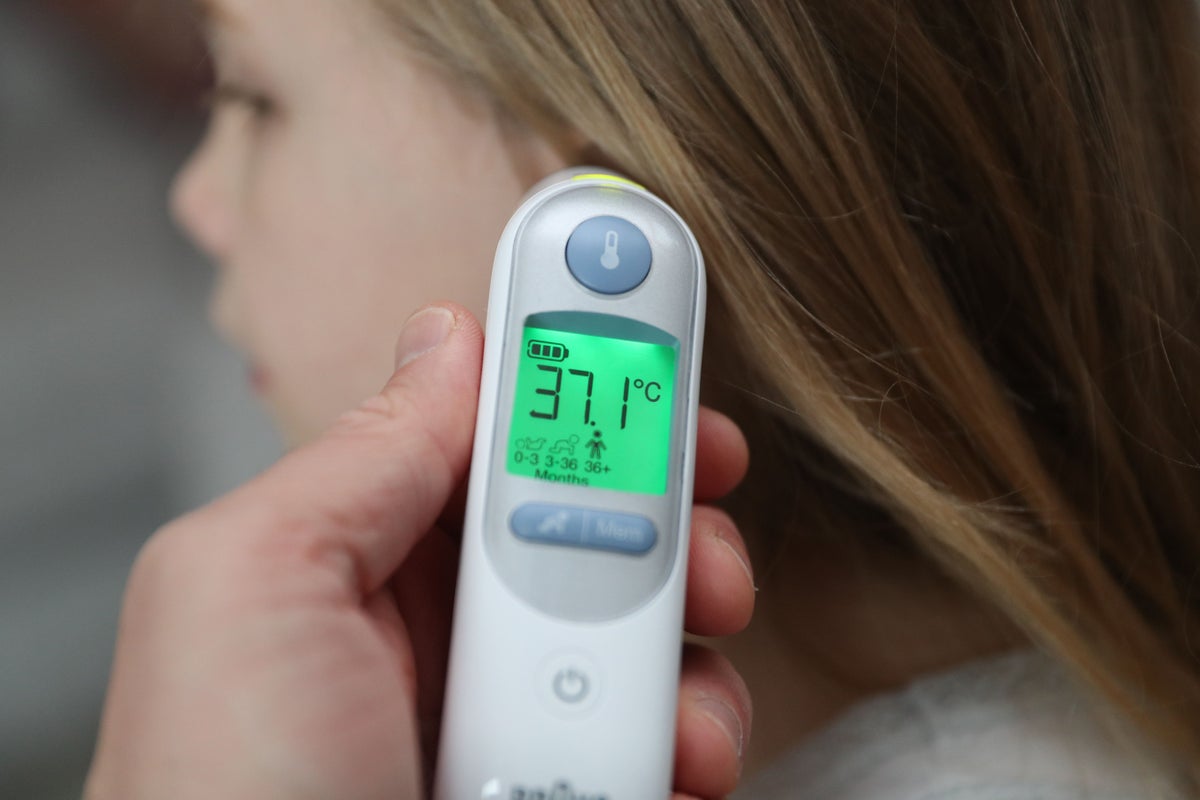
At least 15 children have died with an invasive form of the bacteria in recent weeks, while cases of scarlet fever, which is caused by Strep A infection, have skyrocketed.
The bacteria, Streptococcus pyogenes, can linger in the throat and on the skin and cause many different illnesses if transmitted through sneezing or physical contact, including impetigo, scarlet fever and strep throat.
While the vast majority of infections prove relatively mild, the bacteria can also sometimes cause a life-threatening illness known as invasive Group A Streptococcal (iGAS) disease. Symptoms include high fever, severe muscle aches, localised muscle tenderness and redness at the site of a wound.
According to UK Health Security Agency (UKHSA) data, there have been 2.3 cases of invasive disease per 100,000 children aged one to four this year in England, compared with an average of 0.5 in the pre-pandemic seasons of 2017 to 2019.
There have also been 1.1 cases per 100,000 children aged five to nine compared with the pre-pandemic average of 0.3.
Parents have been urged by schools to be on the lookout for symptoms including persistent fever, cellulitis and arthritis and warned that children who have previously had chickenpox or flu could be more vulnerable to the infection than others.
Families with concerns have been advised to contact their GP or call NHS 111 if their child falls ill or feels unwell, to keep them off school until they are better, to practise good hand hygiene and use tissues to shield coughs and colds.
There is no vaccine to guard against Strep A or scarlet fever, although in the former case, several have reportedly been through early-stage clinical trials and research into the matter has been ongoing since the 1940s.
Speaking on Radio 4’s Today programme, Professor Adam Finn, of the University of Bristol, said Strep A had been neglected in terms of vaccine development.
“We don’t see so much of it as we did historically [but] it’s something that we do see quite frequently in little bursts as the years go by,” he said.
“There is a desperate need to make a vaccine against this bug. It’s a very neglected bug, it causes a lot of problems, the most notable of which is rheumatic fever, which is a problem in many children in poor countries.”
Antibiotics are usually the first line of defence against Strep A infections, although health secretary Steve Barclay has been forced to deny that the UK is facing a supply issue concerning them while conceding that GPs might face shortages as stock is moved around.
“Sometimes, GPs can have particular surges if they’ve got a lot of demand in an area, and that’s quite routine, we can move the stock around our depots,” he told Sky News on Wednesday morning.
“As of last night when we checked [with suppliers], they said they could reassure us that they’ve got good stock and were moving that around to meet demand.”

However, that was refuted by Dr Leyla Hannbeck, CEO of the Association of Independent Multiple Pharmacies, who told Times Radio: “There is patchy supply [of penicillin] and we have been checking regularly. And when you go online to order these medicines, particularly the liquid ones for children, you get these red marks basically saying that the product is out of stock. and this is happening all over the country.
“Sometimes the stock becomes available and you order it. But as soon as you order it, it goes out and you can’t order any more.
“We know that demand is high and we have raised this with the Department of Health... I don’t know where they get their facts from. But we on the frontline are seeing this and reporting this. We simply cannot get the products. It’s patchy.”
Thorrun Govin, chair of the Royal Pharmaceutical Society, has meanwhile urged parents not to demand antibiotics from druggists without a prescription.
You can find out more about Strep A on the UKHSA blog and about scarlet fever on the NHS website.







